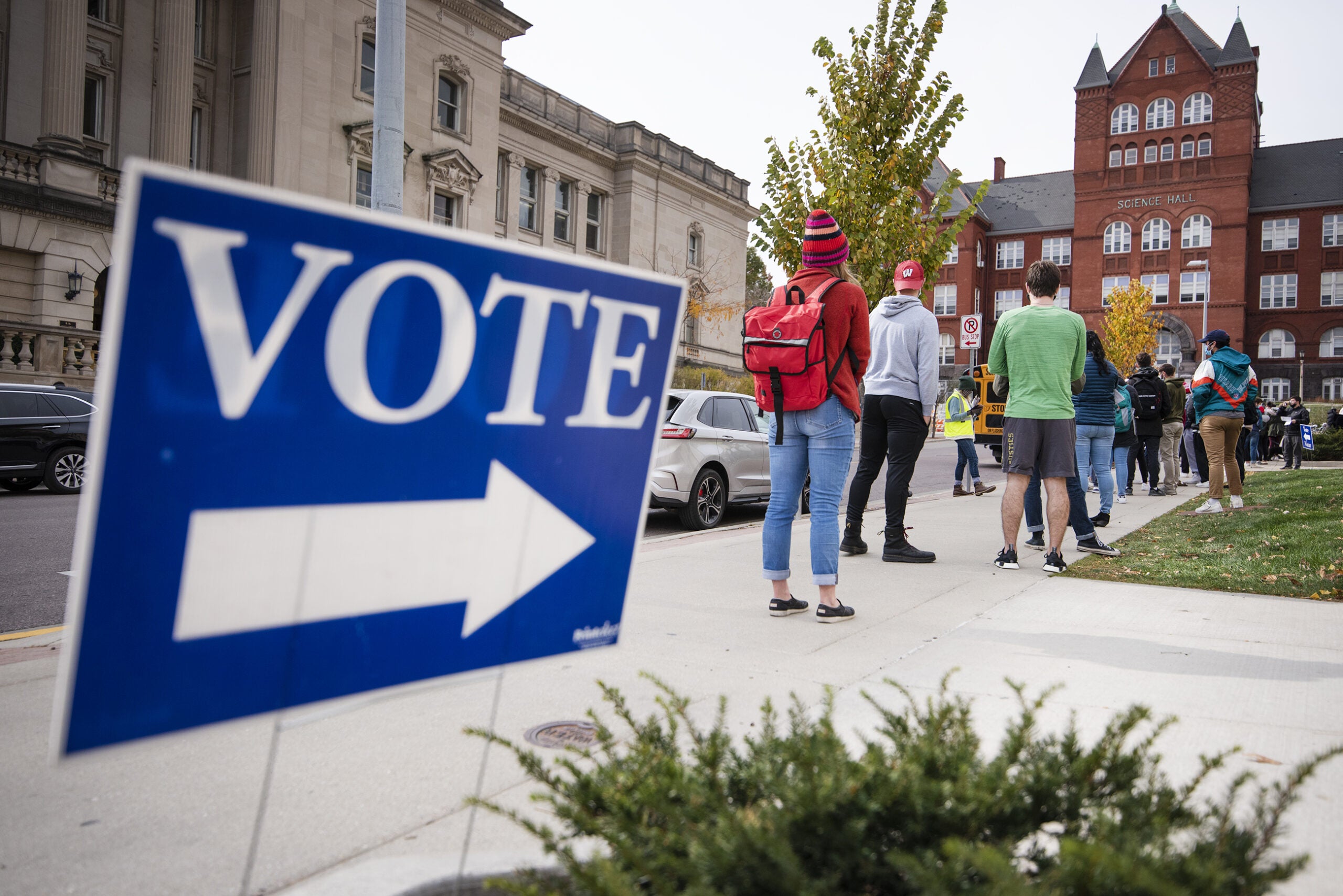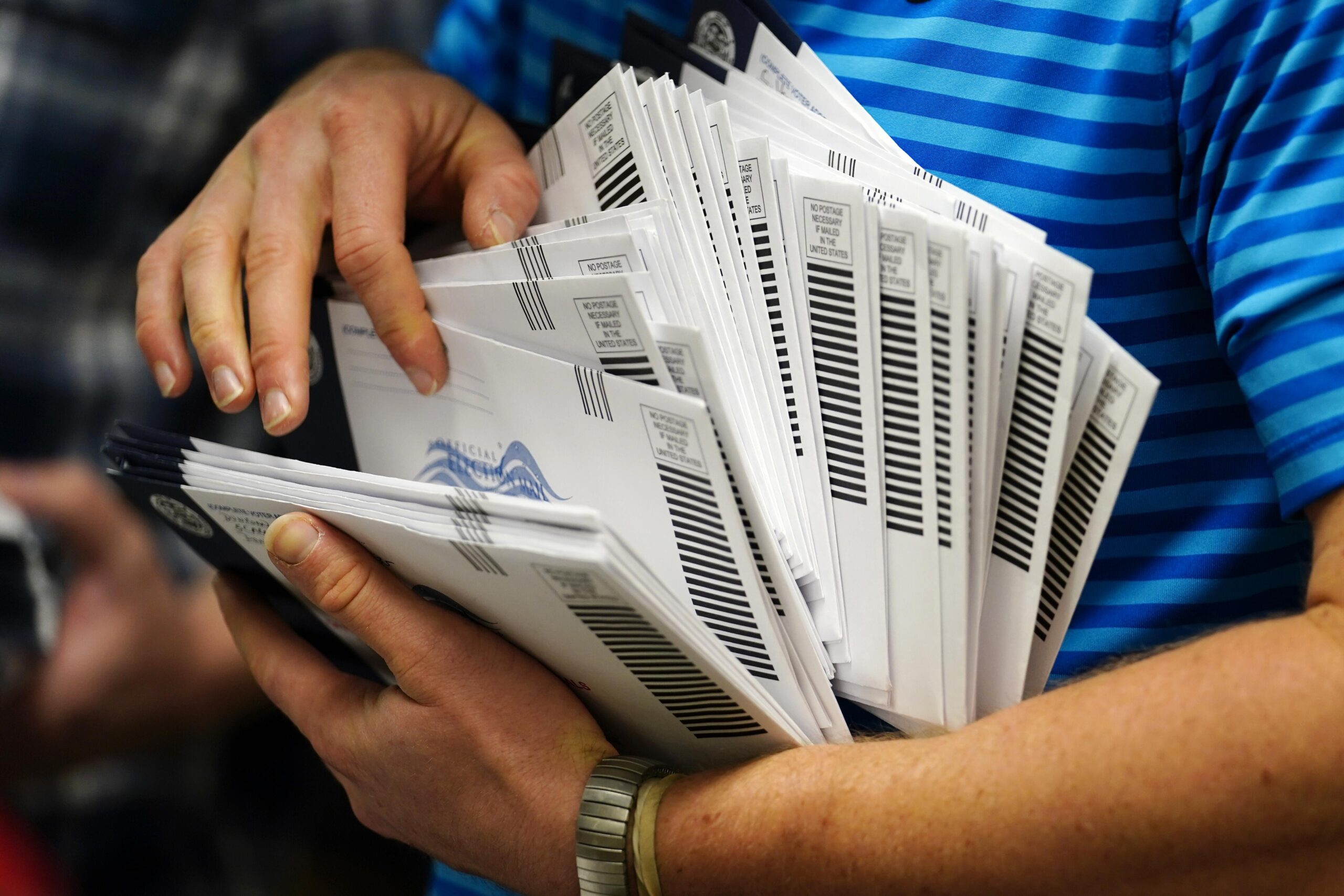Wisconsin election officials have had six months since April’s chaotic presidential primary election to figure out what safe and efficient voting looks like during a global pandemic. They’ve started new programs, reached out to educate voters, and stocked up on supplies — but they’re still facing uncertain circumstances and Wisconsin election laws some say make it too hard to vote.
Wisconsin’s April election happened during a challenging time for the state. The coronavirus pandemic was in its early days. On March 25, Gov. Tony Evers issued his “safer at home” order, less than two weeks before election day.
People were trying to figure out how to vote by mail, many for the first time in their lives, and their ballots weren’t arriving quickly enough. Lawsuits were flying, which led to even more frustration and confusion for voters.
News with a little more humanity
WPR’s “Wisconsin Today” newsletter keeps you connected to the state you love without feeling overwhelmed. No paywall. No agenda. No corporate filter.
In some cities, including Milwaukee and Green Bay, a shortage of poll workers due to coronavirus fears led to a drastically reduced number of voting locations, leaving some voters waiting in line for hours.
For November’s general election, officials are trying to help things go more smoothly.
Madison Offers Outdoor Ballot Drop-Off
On a crisp fall afternoon in October, Tom Poppe was in Madison’s Rennebohm Park, a tree-filled green space on the city’s near-west side with a basketball court, a playground, a community garden and — on that particular day — an outpost for the city clerk’s office.
Poppe is an election worker for the Madison city clerk. A clipboard in hand and a bright yellow safety vest pulled over his jacket, he helped Madison voters turn in completed absentee ballots.
“It’s just like an extension of the city clerk’s office, if you think of it that way,” Poppe said.

Natalie, a voter in Madison, completes her absentee ballot at a park table before dropping it off in person Saturday, Oct. 3, 2020, at Garner Park. Angela Major/WPR
The event, called “Democracy in the Park,” provided more than 10,000 voters a place to drop off completed ballots or to get witness signatures on ballots they had already received through the mail. No new ballots were handed out.
Poppe and his fellow poll worker were attentive guards to the tamper-safe ballot bag, tucked under a picnic table.
Renee Han, who lives near the park, was thrilled to learn she was mere steps away from turning in her ballot and completing her democratic duty more than three weeks before Election Day.
“I just wanted to give (my ballot) to an actual person,” she said.
Jennifer Bellehumeur, who brought her ballot to the park while walking her dog, agreed.
“As much as I like to support (the Postal Service), I guess I’d just rather drop it off here, with a known poll worker, and it’s in someone’s hands,” she said. “I feel like the mail is a little bit risky right now.”
Potential Postal Service delays are causing some Wisconsin political party officials anxiety this fall as well.
Voters, Party Officials Worry About Mail Delays
Under state law, voters can request their ballots as late as the Thursday before Election Day — with just five days to receive, complete, and return it. But the U.S. Postal Service recommends people mail completed ballots “at least one week” before they’re due. In Wisconsin, that’s 8 p.m. Election Day.
The space between what state law allows and what the Postal Service says is possible has spurred Ben Wikler, chair of the Democratic Party of Wisconsin, to adopt a new mantra this October.
“We just want to say, ‘Go, go, go,’” he said. “Let’s do this, let’s do this early, and let’s get those ballots in.”

A U.S. Postal Service drive-up mail collection box is seen in Madison, Wis., on Aug. 17, 2020. Coburn Dukehart/Wisconsin Watch
In April, 79,000 ballots arrived at clerks’ offices after election day, according to the Wisconsin Elections Commission. But because a federal court granted a six-day extension for clerks to receive ballots, they were still counted.
Democrats and several advocacy groups have filed a lawsuit to get a similar extension for November’s election. So far, they haven’t been successful.
“I think the main lesson here is don’t leave anything to the last second, don’t leave anything to chance,” Wikler said. “Anyone holding an absentee ballot right now is probably watching their phone ring off the hook with reminders and support and instructions to get it in.”
He said the party is offering a free hotline for voters to call with questions about the process or help troubleshooting problems.
Wisconsin Public Radio, © Copyright 2025, Board of Regents of the University of Wisconsin System and Wisconsin Educational Communications Board.







